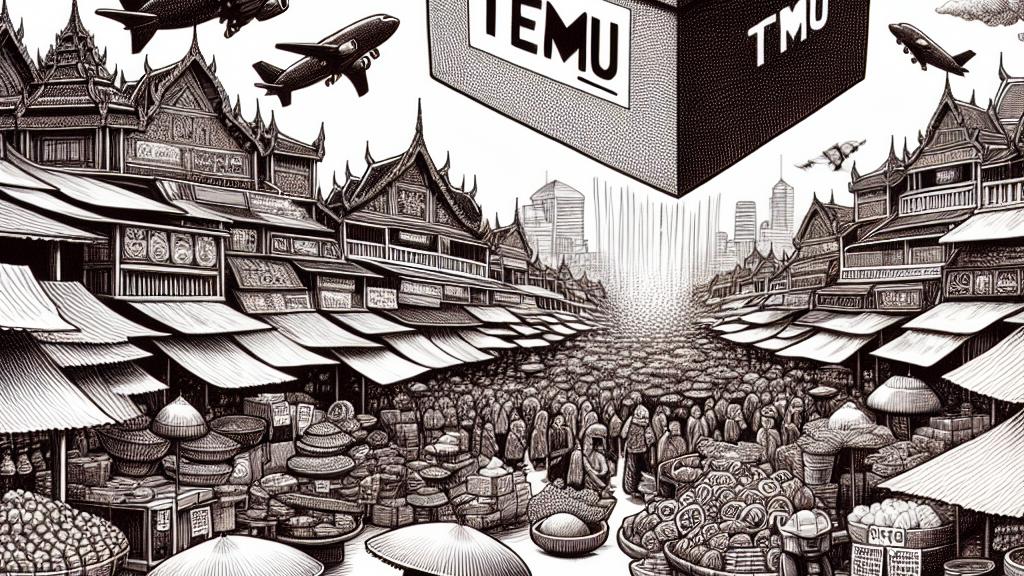China's Cheap Goods Invade Thailand: A Trade Crisis Looms!
Overview
- The surge of low-cost Chinese products threatens the viability of Thai businesses.
- Temu's entry into the Thai market exacerbates competitive pressures within e-commerce.
- Immediate government action is essential to protect consumers and local industries against unfair competition.

The Dangers of Substandard Chinese Imports
Thailand is facing an unprecedented challenge as cheap, substandard goods from China flood into its market, posing a severe threat to local manufacturers and retailers. The recent entry of Temu, a rapidly growing Chinese e-commerce platform, has intensified this issue by offering products at prices that undercut local competitors significantly. The quality of these imports often falls short of Thai safety standards, raising concerns for consumers who may unknowingly purchase harmful products. As these low prices attract price-sensitive shoppers, local businesses lament the strain on their sales, fearing for their sustainability and future.
Economic Consequences and Political Responses
The economic repercussions are staggering, with Thailand recording a trade deficit of $36 billion with China over the past two years. This deficit has prompted calls from local politicians, such as MP Sahassawat Kumkong, for a collaborative response from other ASEAN nations that are similarly affected by an influx of Chinese goods. A significant decline in production—reportedly up to 30% across multiple industrial sectors—has resulted in the closure of numerous factories, leading to heightened unemployment concerns. Critics argue that the government’s failure to act decisively allows Chinese imports to monopolize the market, potentially dismantling the foundations of Thailand’s local economy.
Need for Regulatory Framework and Future Strategies
As this crisis unfolds, the Thai government is at a crucial juncture, tasked with developing a comprehensive regulatory framework to manage the influx of Chinese goods. Prime Minister Srettha Thavisin recognized the need for regulations that ensure imported products comply with local laws while safeguarding consumer interests. The existing political landscape places pressure on protective measures that can shield local manufacturers from unfair competition. As Temu and similar platforms continue to expand their market shares with persuasive discount offers, it is imperative for the government to enact both immediate and long-term strategies that stimulate domestic production, protect employment, and uphold product quality standards. Failing to do so could lead to irreversible damage to Thailand's economic integrity and consumer safety.

Loading...